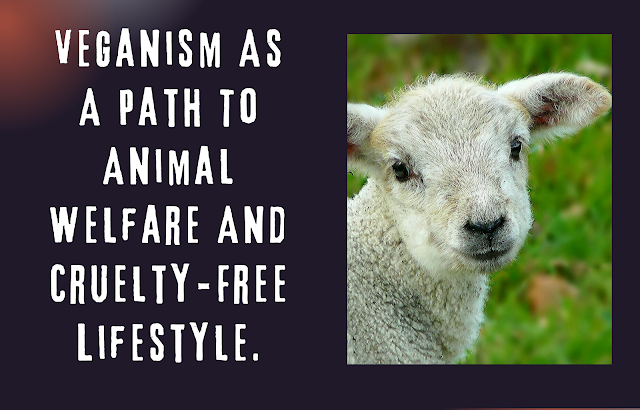The debate surrounding animal cruelty has surged to the forefront of ethical discussions in recent years, prompting myriad questions regarding effective remedies. Among these, the query “Is veganism the only way to stop animal cruelty?” emerges not just as a rhetorical device but as a critical challenge that delves deep into the ethics of consumption and personal responsibility. While veganism is heralded as a powerful means to combat animal suffering, this article endeavors to paint a broader picture, exploring alternative pathways to alleviate the pervasive issue of animal cruelty.
The principal tenet of veganism is the rejection of animal-derived products. This lifestyle choice is underpinned by a commitment to spare innumerable animals from the grip of cruelty and exploitation. The statistics are staggering: in the modern industrial farming system, billions of animals are subjected to inhumane living conditions, often deprived of natural behaviors, resulting in physical and psychological suffering. Veganism directly addresses this, ensuring that individuals do not contribute to demand for such cruelties. However, to posit that veganism singularly resolves the multifaceted ethical dilemmas surrounding animal rights is to overlook a spectrum of potential solutions.
At the outset, it is essential to acknowledge that the ethical considerations surrounding animal treatment extend beyond diet. The fashion industry, entertainment sector, and scientific research also engage in practices that can lead to significant suffering. For instance, fur production, animal testing, and even the use of animals for sports or entertainment raise profound ethical questions about exploitation that transcend dietary choices. Hence, while veganism is a proactive step, it is but one facet of a larger tapestry of advocacy and reform needed to address animal welfare.
Improvements in animal welfare could also be realized through reforming agricultural practices themselves. Shifts toward humane farming demonstrate an acknowledgment of animal sentience, emphasizing the quality of life of farmed animals instead of solely their profitability. Initiatives such as pasture-raised, free-range, or organic farming not only prioritize animal welfare but appeal to a growing consumer base seeking ethically sourced products. Such changes may not completely eliminate animal exploitation, but they represent significant strides in mitigating cruelty.
Furthermore, the advent of lab-grown meat offers a thrilling alternative that could revolutionize the meat industry. This innovation presents a unique solution—cultivating muscle cells in a controlled environment, thereby removing the need for animal slaughter while satisfying the carnivorous cravings of many. This technological feat could bridge the gap between omnivores and vegans, providing a palatable compromise that assuages ethical qualms without necessitating a complete overhaul of dietary habits.
Conversely, community engagement and education serve as instrumental avenues for fostering compassion towards animals. Programs that inform the public about animal rights, ethical treatment, and the environmental impact of animal agriculture can invigorate grassroots movements. By highlighting the perspectives and lived experiences of animals, activists can inspire empathy and encourage individuals to consider their choices more critically. Even simple actions, such as reducing meat consumption—termed ‘flexitarianism’—can collectively lead to a significant decrease in animal suffering.
This raises an intriguing proposition: can you truly be an activist if you are not a vegan? The rhetoric surrounding dietary choices often paints a binary picture of moral righteousness where one side is deemed superior. Yet this reductionist view neglects the valid contributions of those striving to make ethical choices in their diets, even if they fall short of total abstinence from animal products. This notion opens up room for dialogue, allowing for a more inclusive approach that recognizes incremental progress rather than the rigid dichotomy of “us versus them.”
Moreover, examining the environmental ramifications of animal agriculture reinforces the interconnectedness of animal welfare and ecological sustainability. The compounding issues of climate change, deforestation, and biodiversity loss stem, in part, from industrial farming practices. Thus, advocating for environmental conservation inadvertently supports animal rights, as the preservation of habitats and ecosystems is crucial for the survival of countless species. This intricate relationship necessitates a multifaceted advocacy approach that intertwines veganism with broader ecological initiatives.
To genuinely grapple with the dilemma of animal cruelty, it is imperative to engage all stakeholders—consumers, farmers, policy-makers, and researchers. Legislative frameworks that promote the humane treatment of animals within agricultural systems can often hold more sway than individual dietary choices. Implementing animal welfare laws and ethical sourcing regulations can create systemic change, thus fostering environments where cruelty is inherently minimized. Therefore, while veganism may serve as a guiding philosophy, it must be complemented by robust policies that prioritize animal welfare across all sectors.
Ultimately, the proposition that veganism is the sole remedy for animal cruelty is an oversimplification of a complex issue. Although it undeniably offers a powerful means for individuals to make ethical and compassionate choices, myriad alternatives exist that contribute meaningfully to the cause. Embracing a more holistic perspective can galvanize collective action, design sustainable practices, and unify diverse approaches toward animal welfare. The challenge lies not just in promoting a singular diet but in cultivating a culture of empathy and responsibility, ultimately leading to a world where animal lives are revered and respected.










